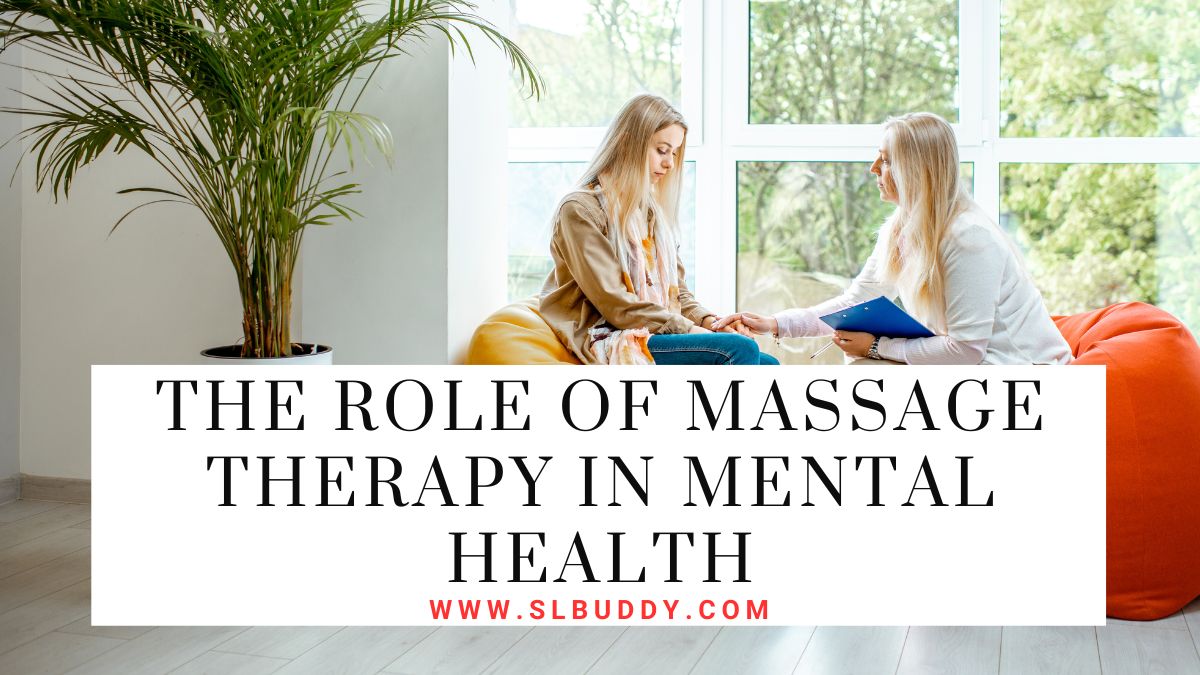
Massage therapy, commonly praised for its numerous physical advantages, also plays a crucial role in enhancing mental well-being.
The complex relationship between the body and mind cannot be ignored, and massage therapy embodies a comprehensive approach to addressing both the physiological and psychological aspects of overall health.
By integrating physical healing with mental relaxation, this holistic method contributes significantly to one’s total well-being and encourages a balanced state of mind.
In this comprehensive overview, we delve into the various ways massage therapy contributes to mental health.
Alleviating Stress and Anxiety
One of the primary methods through which massage therapy effectively benefits mental health is by harnessing the power of human touch.
These massage sessions work to stimulate the release of endorphins, which are the body’s innate feel-good hormones, subsequently leading to a profound sense of relaxation and a general state of well-being.
For those individuals who grapple with stress and anxiety, maintaining frequent massage sessions can serve as a crucial therapeutic sanctuary, bestowing an invaluable respite from the relentless pressures and demands that pervade daily life.
Reducing Symptoms of Depression
Massage therapy has increasingly gained recognition as a viable complementary method for mitigating symptoms linked to depression.
The physical interaction experienced during a massage fosters an atmosphere of solace and human connection, effectively counteracting the feelings of isolation frequently tied to depressive disorders.
Furthermore, the surge of serotonin and dopamine released throughout a massage session aids in establishing a greater sense of emotional equilibrium, thereby enhancing its significance as an integral part of a comprehensive mental health care strategy.
Easing Tension and Improving Sleep
Tension held in the body often mirrors mental stress. Massage therapy targets specific muscle groups, releasing tension and promoting a sense of relaxation that extends to the mind.
As a result, individuals may experience improved sleep quality. The relief from physical tension directly influences mental relaxation, creating a positive feedback loop that enhances overall sleep patterns and contributes to better mental health.
Empathy and Compassion in Practice
Massage therapists trained in trauma-informed care bring empathy and compassion to their practice, recognizing the potential impact of trauma on mental health.
In a safe and supportive environment, clients can experience healing through massage therapy.
This approach emphasizes consent, communication, and creating a space where individuals feel empowered and in control, fostering a sense of safety essential for mental well-being.
Tailoring Sessions to Individual Needs
Effective communication between the client and the massage therapist is crucial in addressing specific mental health concerns.
Therapists trained in understanding the nuances of mental health conditions can tailor massage sessions to meet individual needs.
Whether it’s managing symptoms of PTSD, alleviating stress-related headaches, or simply providing a moment of relaxation, open communication ensures that the massage experience is both beneficial and comfortable for the client.
Fostering Mental Health Awareness
The education and training received at massage therapy schools in Calgary play a significant role in fostering mental health awareness among practitioners.
Understanding the psychological benefits of massage therapy equips therapists to approach their practice with a holistic perspective.
By integrating mental health considerations into their approach, massage therapists contribute to a more comprehensive and nuanced understanding of the mind-body connection.
Processing and Integrating Feelings
Massage therapy can act as a catalyst for emotional release. The physical manipulation of muscles can stimulate the release of stored emotions, providing individuals with an opportunity to process and integrate feelings.
For those carrying emotional burdens, massage becomes a therapeutic avenue for expressing and releasing pent-up emotions, contributing to a sense of emotional well-being.
Self-Care and Prevention
Engaging in regular massage therapy sessions can be seen as a proactive method for maintaining mental health by encouraging continuous self-care practices.
By integrating massage into one’s wellness routine, individuals are able to effectively manage stress levels, mitigate the possibility of experiencing mental health difficulties, and bolster their overall emotional resilience.
This preventive aspect of massage therapy complements the more extensive movement towards a holistic approach to health and fostering a greater sense of self-awareness in one’s daily life.
Community and Connection
In today’s world, where digital connections continue to expand and dominate, the essential human requirement for physical touch and personal interactions remains of utmost importance.
Massage therapy, transcending its numerous physical and mental health advantages, extends an authentic human bond within a secure and professional environment.
For those who suffer from social isolation or an absence of meaningful tactile connections, massage therapy presents a vital chance for encouraging positive human exchanges, and cultivating a sense of camaraderie and mutual support within the community.
Don’t miss: How to Navigate Health Challenges Caused by Others’ Negligence
The bottom line
In embracing the holistic approach of massage therapy, we recognize its profound impact on mental health.
From stress reduction and anxiety alleviation to trauma-informed care and emotional release, massage therapy offers a multifaceted approach to supporting mental well-being.
As massage therapy schools continue to prioritize mental health education, practitioners are equipped with the knowledge and skills to create a therapeutic space that addresses both the physical and mental aspects of healing.
Ultimately, the integration of massage therapy into mental health care reflects a commitment to holistic well-being and the recognition of the interconnectedness of body and mind.














